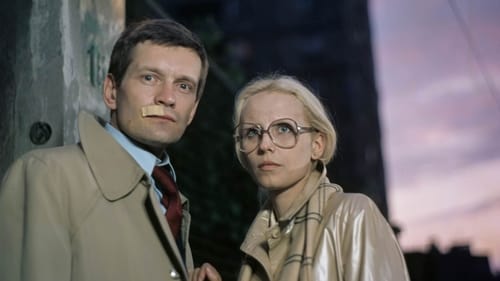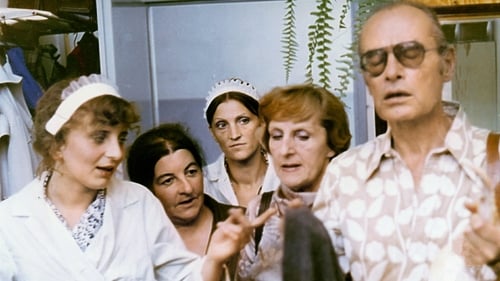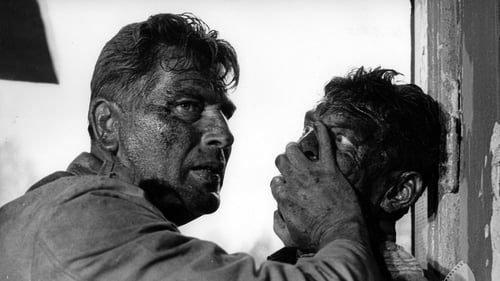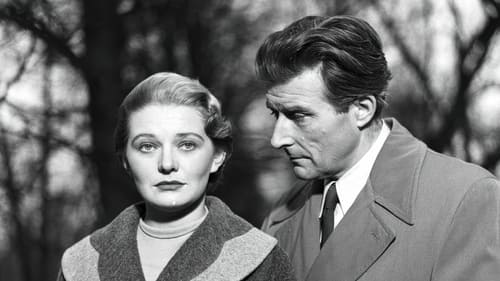Mariusz Gorczyński
出生 : 1933-03-25, Warsaw, Poland
死亡 : 1990-12-15

policeman
The 1930s. An investigetion after founding a dead body on the street of Cracow.

Pułkownik Gralewski-Pankowski

rozbrajany oficer / japoński delegat na Kongresie Wersalskim
A two-part historical film covering the years of the First World War and the post-war period up to 1919 - until the signing of the peace treaty in Versailles near Paris. An attempt to show the great and complicated process of regaining an independent existence by a nation within its own state. The screen shows characters from history textbooks: Józef Piłsudski, Ignacy Paderewski, Roman Dmowski, Wojciech Korfanty as well as representatives of the world political scene, incl. David Lloyd George, Woodrow Wilson, Georges Clemenceau, Vladimir Lenin and others.

oficer towarzyszący Piłsudskiemu w spotkaniu

skrzypek z Warszawy; nie występuje w napisach
A violinist in a provincial Polish orchestra, whose husband is the director of the ensemble, on a visit to the US ties up with the world- renowned symphony conductor. As it turns out he was once in love with violinist's mother. The conductor, a slightly unstable hypochondriac, returns to Poland to lead the provincial orchestra. He also tries to revive old love affair using the violinist as a surrogate of her mother. Her husband is resentful of the conductor for both personal and professional reasons.

Wisiorny, właściciel "kabrioleta"
Tadeusz Krzakoski (Krzysztof Kowalewski), the director of a failing state-owned company, is married with problems. His mistress, the daughter of a Communist party bigwig, says she's pregnant and Tadeusz knows he'll have to marry her to save his reputation and his job. But divorce is never simple and Bareja's screwball comedies are never boring.

Szczupak
Young former partisan recalls his war experience during a trip to the sea.

porucznik Iwan Osipowicz Riabin

Pvt. Jan Czywil
Westerplatte is a small peninsula at the entry to the Gdansk Harbour. Before World War II, it functioned as a Polish ammunition depot in the Free City of Danzig/Gdansk. Its crew consisted of one infantry company and a group of civilians, 182 people in total. It was the only Polish guard-post at the mouth of the Vistula River, with as little as five sentries, one field cannon, two anti-armour guns and four mortars. It was the first obstacle to Hitler's predatory march across Europe. The first shots of World War II were fired here. This film tells the story of Westerplatte's courageous defenders.

Marian Anto, konferansjer i piosenkarz zespołu "Jeździmy z Humorkiem"
Polish musical comedy. The film focuses on two friends who spend their vacation in the beautiful countryside of Mazury. They buy a very nice car (Syrenka), but in order to pay for it the men need to start working as solicitors for a notable art impresario named Koszajtis. Soon they get thrown right in the middle of a hilarious war between two rivaling music-and-dance groups.

Rysiek Bednarek
A group of young Lódz hoodlums spends their time shoplifting, partying and drinking heavily, until they are faced with serious consequences of their reckless behaviour.

gość na przyjęciu (nie występuje w napisach)
Roza marries a promising young architect, Juliusz ; for a few months, they have a blissful life together. Then World War II breaks out and within weeks Juliusz is deported to a concentration camp. Months, and then years go by, until Roza abandons any hope that her husband might return. She meets and falls in love with another man, and tries to put her life back together, but one day, unexpectedly, Juliusz does return - a shattered, mere ghost of his former self, physically crippled and tormented by memories of the camps. First out of duty, then out of pity, Roza starts to care for him, but her feelings slowly are transformed into a kind of revulsion






